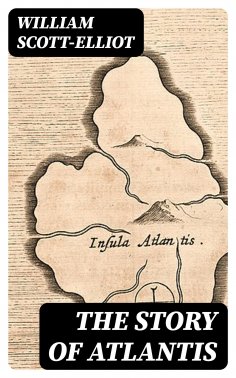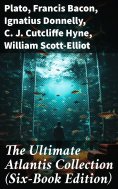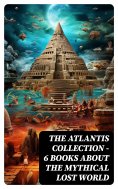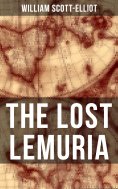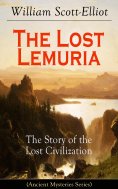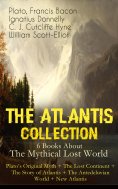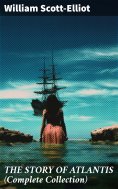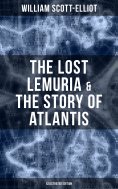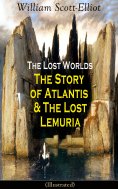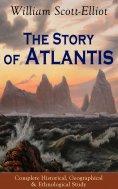The Story of Atlantis
About the eBook
In "The Story of Atlantis," William Scott-Elliot weaves a compelling narrative that seeks to blend myth with scholarly inquiry, offering readers a detailed account of the legendary lost civilization of Atlantis. Scott-Elliot employs a vivid and engaging literary style, skillfully intertwining elements of fiction and philosophy to reimagine Plato's original accounts. Set against the backdrop of the late 19th century, the book echoes the era's fascination with ancient myths and the occult, as well as the burgeoning interest in historical linguistics and archaeology, thus contributing a unique interpretation to the Atlantis narrative while inviting readers to ponder themes of utopia, human folly, and spiritual evolution. William Scott-Elliot, a British author deeply immersed in theosophy and spiritualism, was significantly influenced by the intellectual currents of his time. His keen interest in ancient civilizations and mystical traditions shaped his exploration of Atlantis, positing it as not merely a myth but a potent symbol of lost wisdom and idealism. Scott-Elliot's background in philosophy and mythology informs his careful crafting of a narrative that reveals both the splendor and the tragic decline of this fabled society, offering insights that resonate well beyond the confines of his time. "The Story of Atlantis" is a must-read for anyone captivated by ancient myths, historical mysteries, or the philosophical questions surrounding civilization and its discontents. Scott-Elliot's imaginative retelling invites readers to embark on a wondrous journey through time, challenging them to reflect upon the implications of humanity's quest for perfection amid the inevitable tides of history.
About the Author
William Scott-Elliot (sometimes written Scott-Elliott) was a theosophist and author of speculative fiction during the late 19th and early 20th centuries. His most notable work is 'The Story of Atlantis' (1896), a book that delves into the mythos of the lost continent of Atlantis. In it, Scott-Elliot presents a detailed narrative of the Atlantean civilization, drawing upon the theosophical teachings of Helena Petrovna Blavatsky, particularly those in her seminal work 'The Secret Doctrine' which influenced much of the esoteric and occult literature at the time. Scott-Elliot's books on Atlantis and lost civilizations are characterized by their intricate blending of mysticism, historical speculation, and occult philosophy. His literary style is marked by a scholarly tone laced with a visionary and at times extravagant imagination. The contributions of Scott-Elliot are often regarded as part of the broader movement of esotericism and theosophy that shaped much of the spiritual and pseudoscientific discourse of the era. Although his writings on Atlantis are not considered factual by mainstream historical and archaeological standards, they maintain a cult following among enthusiasts of theosophy and alternative history. Scott-Elliot's work on Atlantis was later expanded in his book 'The Lost Lemuria' (1904), wherein he explored similar themes of ancient lost worlds.
Product Details
Publisher: DigiCat
Genre: Sprache - Englisch
Language: English
Size: 300 Pages
Filesize: 713.6 KB
ISBN: 8596547008330
Published: May 17, 2022
